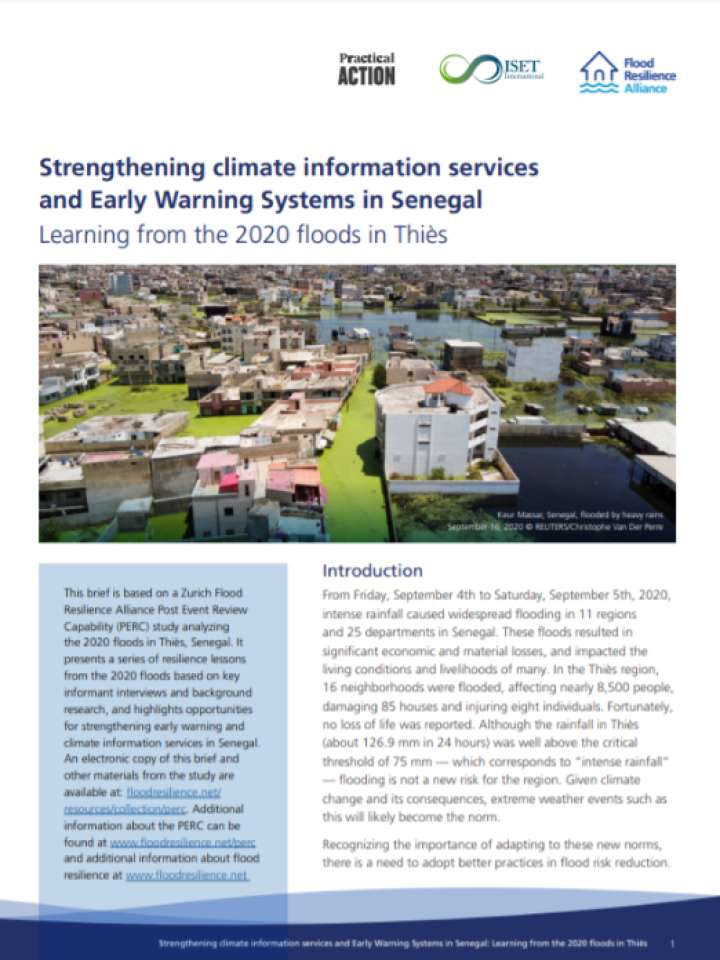Strengthening climate information services and Early Warning Systems in Senegal: Learning from the 2020 floods in Thiès
This brief is based on a Zurich Flood Resilience Alliance Post Event Review Capability (PERC) study analyzing the 2020 floods in Thiès, Senegal. It presents a series of resilience lessons from the 2020 floods based on key informant interviews and background research, and highlights opportunities for strengthening early warning and climate information services in Senegal. From Friday, September 4th to Saturday, September 5th, 2020, intense rainfall caused widespread flooding in 11 regions and 25 departments in Senegal. These floods resulted in significant economic and material losses, and impacted the living conditions and livelihoods of many. In the Thiès region, 16 neighborhoods were flooded, affecting nearly 8,500 people, damaging 85 houses and injuring eight individuals, though no loss of life was reported.
This brief highlights several recommendations for improving early warning systems in Thiès that can be replicated in other locations in Senegal. Firstly, communities must be trained to better interpret climate information. This includes capacity building programmes for communities to understand weather information and raise awareness about flood risks. Training programmes should also focus on good practices in flood risk reduction. Secondly, early warning messages must be tailored to target communities and include clear instructions. Communities should be involved in the design of these warning messages from the beginning, to ensure that they are appropriate and adapted to the local context. Thirdly, flood forecasting must be strengthened. In order to have more accurate and reliable information, ANACIM requires a functioning radar that provides more accurate forecasts of rainfall intensity compared to the automatic stations ANACIM now relies on. Additionally, more time is needed to transmit warnings. This will provide people with more time to take early action and respond. Lastly, strengthen the capacity of Local Flood Management Committees (Comités Locaux de Gestion des Inondations, CLGIs) in risk prevention.
Explore further
